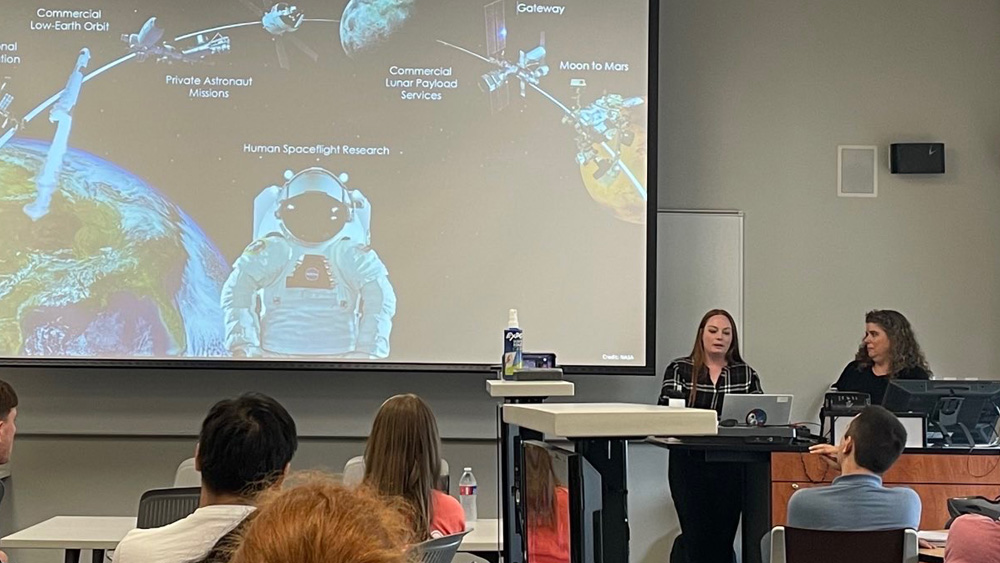
In summer 2022, Dr. Ranjana Mehta, associate professor in the Wm Michael Barnes ’64 Department of Industrial and Systems Engineering at Texas A&M University and director of the Neuroergonomics Laboratory, participated in a new research collaboration opportunity. She became the inaugural recipient of NASA’s inclusion, diversity, equity, accessibility and space exploration (ideas) faculty fellowship.
The fellowship resulted from a partnership between the NASA Human Research Program and NASA Human Health and Performance Directorate at the Johnson Space Center (JSC) in Houston. By expanding nontraditional faculty partnerships, the fellowship enables accessibility for underrepresented scientists in space research.
Mehta worked in NASA’s Neuroscience Laboratory, part of the Biomedical Research and Environmental Sciences Division, where she learned about the needs and processes of how human research for space exploration is conducted, especially when identifying health risks due to altered gravity in space. The lab, led by NASA Johnson Space Center neuroscientist Dr. Scott Wood, also focuses on developing countermeasures for sensorimotor and vestibular impairments, which can impact critical mission tasks.
“I am thankful to NASA for creating a fellowship that enables those of us who have not been previously funded by NASA to get access to the network of scientists so that new fruitful ideas and collaborations can emerge,” Mehta said. “Often, scientists belonging to minority groups have a difficult time with such access, so the fellowship has truly opened doors for future research on human spaceflight in my laboratory.”
“I was able to connect my own research on operator fatigue in extreme environments with the risks identified by the NASA Human Research Roadmap on characterizing risks associated with multiple space hazards (e.g., fatigue and altered gravity),” Mehta said.
She gained a working knowledge of existing sensory augmentation countermeasures, such as virtual reality training, for preflight adaptations. The fellowship also enabled her to develop ground-based analog environments to assess human sensorimotor deficits.
“Most importantly, I understood and recognized the research-to-translation prioritization that every researcher I met at NASA exhibited through their work,” she said.
Along with advancing her technical knowledge, Mehta said the fellowship gave her opportunities to forge new collaborations with different groups at the JSC. Mehta also brought her experiences to the classroom. She integrated NASA research examples into her lecture modules and hosted guest lectures with JSC-based scientists who presented information on various ground analogs (e.g., the Human Exploration Research Analog facility) that mimic space habitats.
“Humans will go on future long-duration lunar and Martian spaceflights that, for the most part, need to be autonomously driven with less reliance on ground-based mission control,” Mehta said. “It is thus important to understand and characterize the health, safety and performance risks placed on astronaut crews such that effective and feasible countermeasures are developed and validated for use in these missions.”